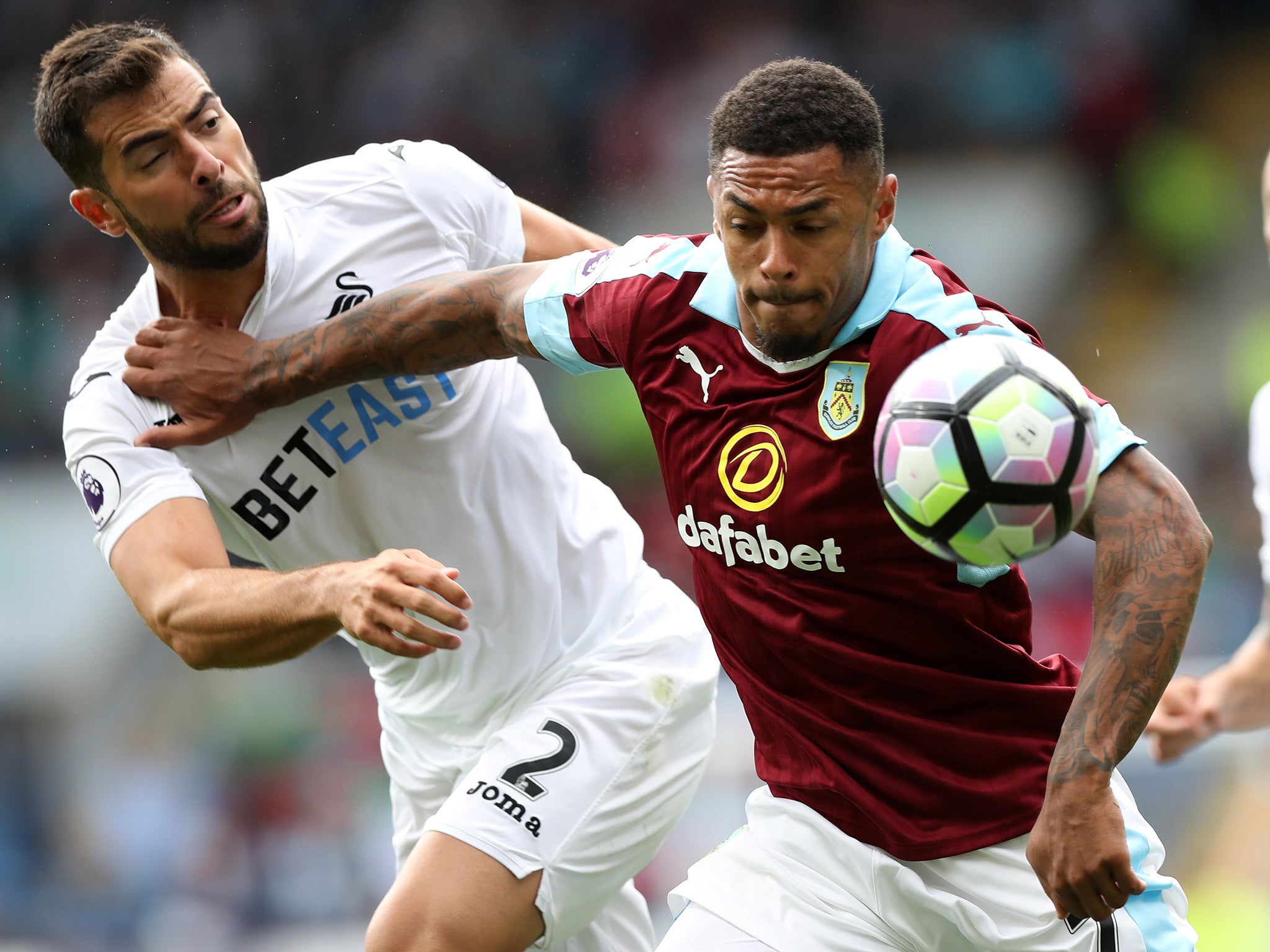The gay community needs to accept Andre Gray's apology for his homophobic tweets – that's how progress happens
Like so many gay people, Gray obviously comes from a background of bigotry which he has had to overcome. We should celebrate the fact that he has become a more tolerant human being


Your support helps us to tell the story
From reproductive rights to climate change to Big Tech, The Independent is on the ground when the story is developing. Whether it's investigating the financials of Elon Musk's pro-Trump PAC or producing our latest documentary, 'The A Word', which shines a light on the American women fighting for reproductive rights, we know how important it is to parse out the facts from the messaging.
At such a critical moment in US history, we need reporters on the ground. Your donation allows us to keep sending journalists to speak to both sides of the story.
The Independent is trusted by Americans across the entire political spectrum. And unlike many other quality news outlets, we choose not to lock Americans out of our reporting and analysis with paywalls. We believe quality journalism should be available to everyone, paid for by those who can afford it.
Your support makes all the difference.“To err is human; to forgive, divine,” or so the saying goes. Homophobia is never excusable; even less so when accompanied by thinly veiled incitement to violence. There was, quite rightly, widespread anger recently when a tweet from 2012 returned to haunt Premier League footballer Andre Gray. The content (“Is it me or are there gays everywhere? #Burn #Die #Makesmesick”) does indeed go beyond the usual casual hurling of slurs and crosses a boundary in terms of its sheer bile.
It is, therefore, with good reason that the ensuing Twitterstorm struck with such force. Demands for an apology were dwarfed by calls for Gray’s dismissal from Burnley F.C. Ultimately, the footballer did post a lengthy apology to his Twitter account, in which he accepted the inherent iniquity of the offending comments and claimed to have changed and “matured” into a different (and better) person over the last four years. “I was at a very different point in my life back then – one that I’ve worked hard to move on from,” he wrote. “I can only apologise and ask for forgiveness… Thankfully I am not the guy I was back then and continue to work hard on and off the pitch to become a better person.”
Particularly fascinating has been the reaction to Gray’s remorse. Many find it difficult to accept the apology – incidentally, still pinned at the top of Gray’s Twitter profile – at face value.
The hurt is entirely comprehensible. The gay community remains largely excluded from the world of professional sport, despite high profile, sustained efforts in recent years to enhance inclusivity both on the pitch and in the stands. It is entirely logical for those most affected by Gray’s wayward words to employ scepticism. One would hope that Gray will now engage proactively with the gay community, as well as organisations that promote inclusive sport, to make amends and advocate for equality. Should he fail to do so, this apology will effectively be perceived as vacuous and self-preserving.
Nevertheless, there was a tone in the statement issued by Gray that should resonate with the gay community and which could, with time, serve as a starting point towards healing and reconciliation. Gray’s allusions to his personal journey in recent years are more detailed than were perhaps necessary. It is a recurring theme in his apology. Are we, as gay people with our own backstories, many of which will have been immeasurably painful, truly willing to dismiss Gray’s words so readily?
Our experiences of self-discovery, coming out, prejudice, discrimination and, in all too many cases, downright oppression, are, to a large extent inextricably linked with our background and upbringing. Behind the noxious words and deeds of many untamed homophobes lurks a formative environment mired in open bigotry and intolerance. To spurn Andre Gray’s attempt at atonement and to rebuff his evolution seems incredibly counterproductive.
One can only imagine the potential potency of an alliance between a reformed Premier League footballer such as Gray and the community he once so gravely insulted. That such a message of redemption could emerge from this bonfire of outrage may seem implausible in the immediate aftermath, the embers still smouldering. Nonetheless, for those who remain stubbornly gripped by prejudice, whatever the underlying cause, this could signal a route of escape, confirmation that good can emerge from bad.
In seeking to build bridges with Andre Gray, we must also find it within ourselves to maintain an intersectional focus. As a young man of colour, Gray will undoubtedly have faced his own struggles, both personally and professionally, in a society still tyrannised by rampant racism and systemic white privilege.
The gay community must also employ a modicum of introspection, given the scourge of racial discrimination all too often perpetrated against BAME gay people. In examining the Gray furore more intersectionally, however difficult that may be, we stand a chance of healing some very sore wounds.
To be clear, as a grown man in the public eye, Andre Gray is responsible for the consequences of his actions. It is perfectly reasonable to demand that he put his money where his mouth is in order to truly make amends with the community he has so viciously insulted.
Be that as it may, this process starts with us taking his apology at face value and, as challenging as it doubtlessly is, meeting Gray on his personal journey. What might ensue is a more profound understanding of each others’ “stories” and the emergence of an intersectional alliance that could change the face of sport for good. We can but hope.
Join our commenting forum
Join thought-provoking conversations, follow other Independent readers and see their replies
Comments